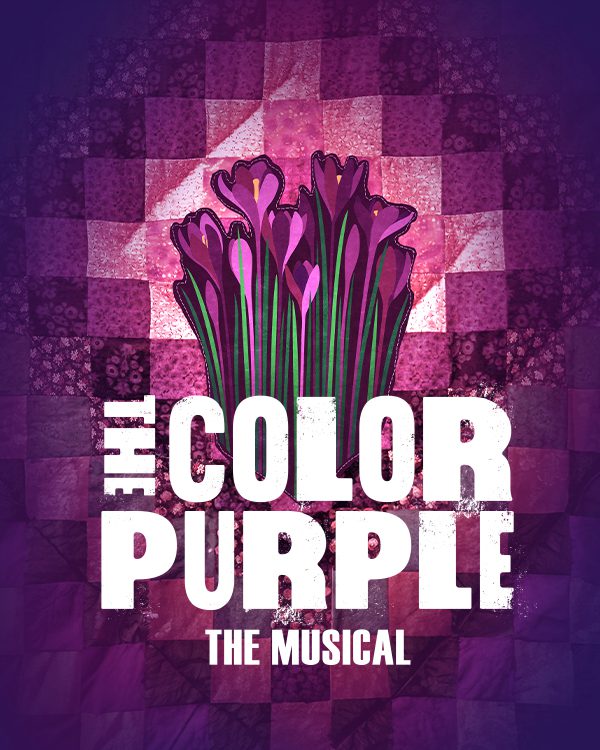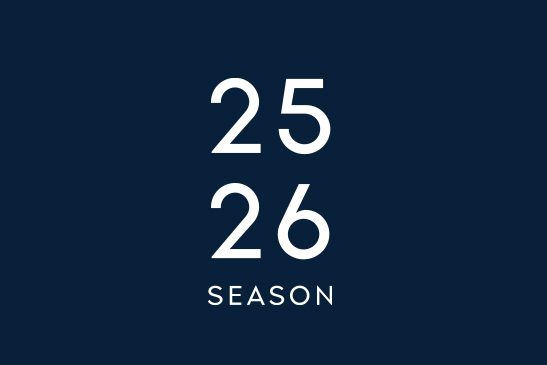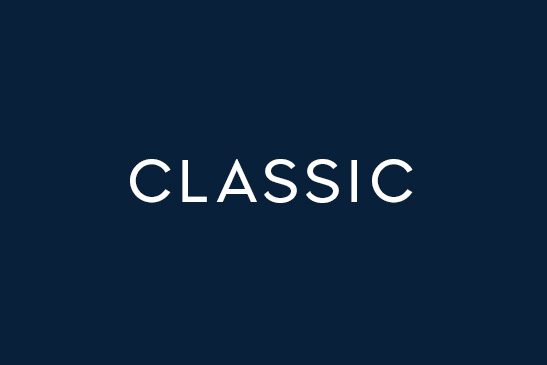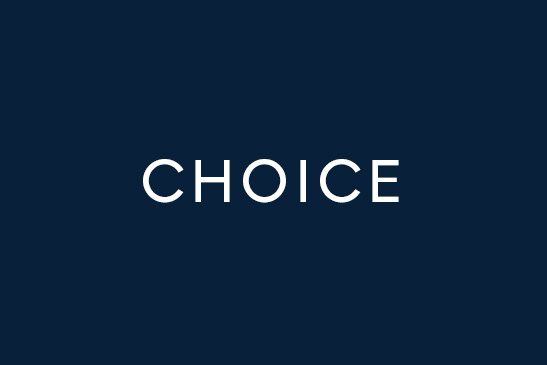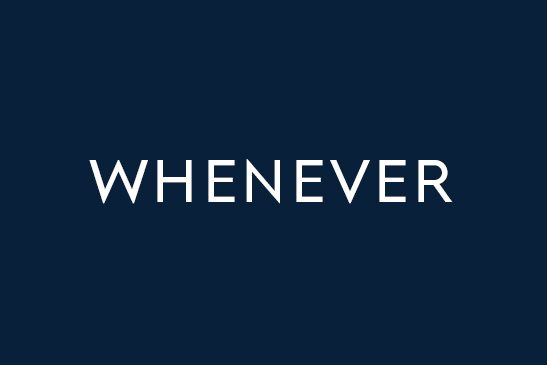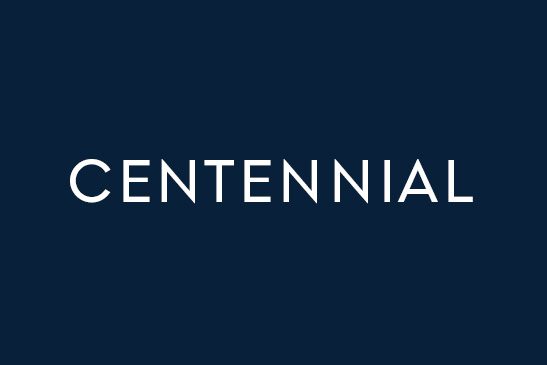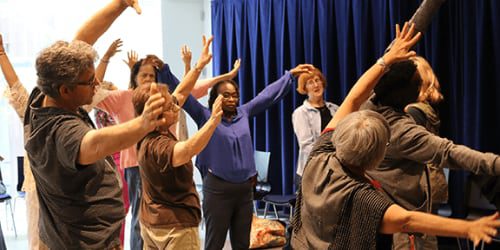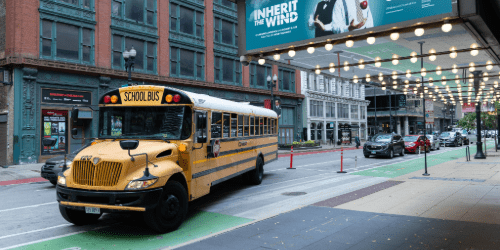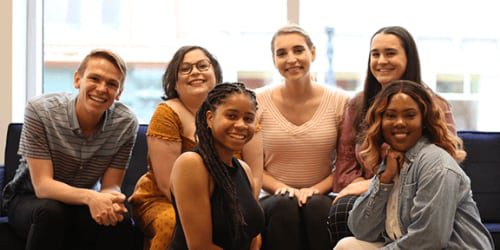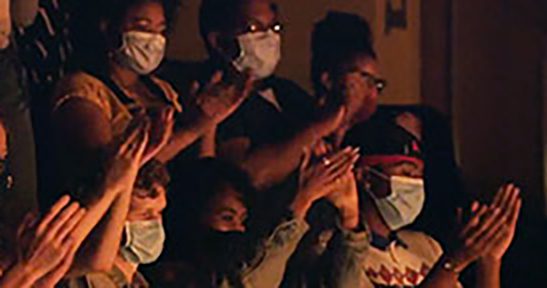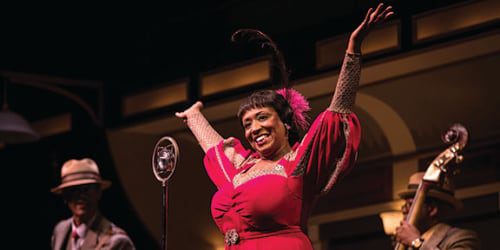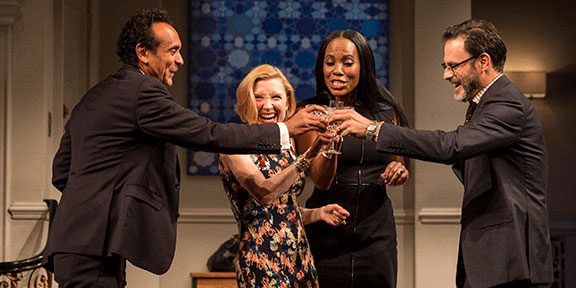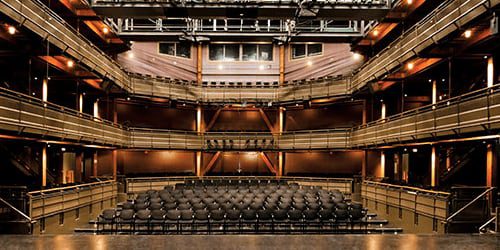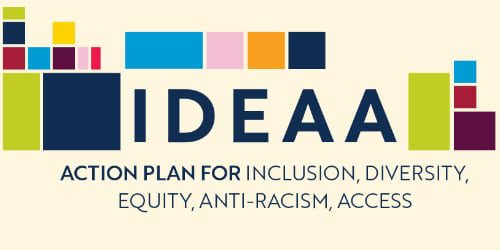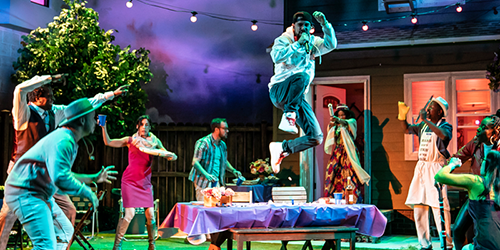Commitment to Action
Friday, April 30, 2021
Our first quarterly update sees progress in all four Cornerstone areas (Policy, Programming, Communication and Research and Assessment). Goodman staff from all areas of the theater were offered the opportunity to join a hybrid entity of Staff Committee members and Goodman staff responsible for a deeper dive into the goals and action items of each area. The following reflects salient updates of their work.
POLICY
Towards ensuring a welcoming and safe space for all, Goodman Theatre’s Community Agreement has been approved and is now available online (GoodmanTheatre.org and social media platforms) and onsite (including, but not limited to, signage in lobbies, elevators, the Alice Rapoport Center for Education and Engagement, rehearsal rooms, backstage, call boards and administrative offices). In addition, this Agreement will be read and reviewed with all artists both on the first day of rehearsals and the first day of technical rehearsals. It will also appear in performance reminder emails and in the playbill. With visibility and regular active discussion, this agreement will become part of our everyday culture.
Senior Leadership Personnel Updates:
- Associate Managing Director Marissa Ford’s position has been expanded to “Associate Managing Director / IDEAA Director.” In this capacity, Ms. Ford retains her responsibilities in general and company management, and will provide ongoing leadership in the planning and execution of the Goodman’s IDEAA plan. In addition to serving as co-chair of the Staff Committee, Ms. Ford will also serve as staff liaison to the IDEAA Committee of the Board of Trustees, helping maintain alignment on IDEAA objectives between Board, senior leadership and staff. Ultimately, in close collaboration with a new Director of Human Resources, Ms. Ford will participate in developing and implementing company-wide strategies for advancing inclusion, diversity, equity, anti-racism, accessibility and overall staff engagement.
- We are now seeking and aim to fill our vacant Director of Human Resources position a senior-level director dedicated to HR, diversity and inclusion by the end of the current calendar year (2021).
- View all current Goodman Theatre employment opportunities here.
PROGRAMMING
A cross-departmental team (members named below) has been assembled to conduct a holistic assessment of all Goodman Theatre talent and workforce development programs to determine how we can better serve our artists, apprentices and interns and develop additional entry points. We aim to create an ease-of-access portal for resume submission even if a specific position is unavailable. This effort works towards increasing pathways for BIPOC and other marginalized/underrepresented communities into theater and creative careers. Team members include Quenna Barrett, Adam Belcuore, Scott Conn, Jonathan Green, Amber Porter, Willa J. Taylor and Kate Welham.
COMMUNICATION
Towards increasing non-English language services, we are working to make Spanish-language captions increasingly available in the upcoming season. In addition, the Goodman is now publishing its production study guides in Spanish.
We have established a cross-departmental team (members named below) to oversee and collaborate on community partner outreach and engagement. This team has defined a Goodman Theatre Community Partner as “an organization, body or group that provides resources or services to the Chicago community and has agreed to receive resources, services, access or promotion from the Goodman on a regular or semi-regular basis.” The team is conducting an audit of all current community partners to learn how the Goodman engages and works with them.
RESEARCH AND ASSESSMENT
Towards cultivating relationships with theater writers and reviewers of color, we will continue to seek connections with the National Critics Institute and BIPOC Critics Lab at the Kennedy Center using information and our experience from the 2017 Criticism in a Changing America boot camp. We have begun contacting attendees from the 2017 boot camp, which includes José Solis, as well as several local members of the BIPOC criticism community. These initial conversations will be completed by end of April 2021 towards developing next steps.
The Goodman has partnered with PepsiCo through their Community Consult program to work towards reviewing procurement practices with a focus on BIPOC and BWMOE (Black, Women and Minority Owned Enterprises) businesses. Over the next three months, cross-departmental teams at PepsiCo will work with a similar team at the Goodman to ensure that our current and future vendors align with the Goodman’s IDEAA plan; develop a method to source vendors with an eye toward inclusion and equity; and determine an annual target spend on BIPOC and BWMOE.
The Research and Assessment Cornerstone Task Force is working to establish relational and procedural agreements for meetings and combined efforts, inspired by the Brave Space agreement.
